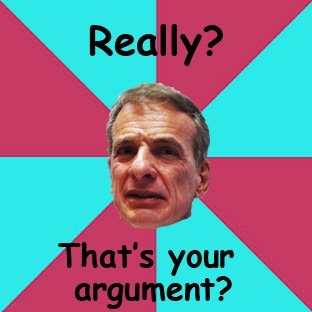podcast 327 – Dr. Licona’s historical case that Jesus considered himself to be God – Part 2
Can we establish on historical grounds that the historical Jesus thought that he was God?
Can we establish on historical grounds that the historical Jesus thought that he was God?
Do I ignore “the” being/Person distinction?
In this post, I’ll take a crack at summarizing a lengthy salvo against Trinity monotheism launched by Daniel Howard-Snyder. Dan is well known and respected for his work on the problem of evil and in theory of knowledge. He has a hard-hitting and thorough style, very Alstonian (which is no accident). Generally, Dan is a nice guy, with a good sense of humor to boot.… Read More »Trinity Monotheism part 6: Attack of the Dan
Can a historian conclude that Jesus thought he was God?
Some responses and a debate challenge.
Responding to YouTube videos by Dr. James White, Mrs. Qureshi, and “The Friendly Banjo Atheist.”
In saying “my Lord and my God” does Thomas confess that Jesus is truly divine?
In the last week of my recent Introduction to Philosophy class, two teams of students debated the existence of God in front of the class. After the debate the rest of the students wrote a short response to the debate. While the pro-God side had offered versions of the design and ontological arguments, one student opined in his written response that they had overlooked the obvious.… Read More »a new proof of God’s existence, with an assist from Dr. Bart Ehrman?
A 2018 trinitarian vs. biblical unitarian debate.
The latest on internet discussion of Dr. Bart Ehrman’s new book and the evangelical response book. Update: part one of my interview with Dr. Ehrman is now out. Part two is out on April 14. Ehrman’s own summary. And short Q & A. Theology professor “Dustin Martyr” evaluates Dr. Ehrman’s arguments, chapter by chapter. Negative review by evangelical theologian Dr. Andreas Köstenberger. Positive review by the Revangelical… Read More »Bart Update
Is there a Trinity theory which is both orthodox and coherent? One apologist’s suggestions, with commentary.
The gripping story of Nabeel Qureshi’s journey from Islam to Christianity.
 This post is a commentary on the Craig-Rosenberg debate. Most of my comments are in italics; factual reporting is in regular text.
This post is a commentary on the Craig-Rosenberg debate. Most of my comments are in italics; factual reporting is in regular text.
In short, Craig undeniably wins. I felt bad for Rosenberg, and could hear naturalistic philosophers of religion face-palming throughout the debate.
Debaters: there’s a lot you can learn from here.
Episode 19 – the final segment of the Lewis-Rogers debate: Is the Trinity polytheism? In this last of our three segments, our debaters each give a second seven-minute rebuttal, and then a five-minute closing argument. This is when they wrap up any loose ends, reiterate their main points, and try to “make the sale.” Are you buying? They get into questions like: Does the Qur’an… Read More »podcast 19 – Lewis vs. Rogers 3 – second rebuttals and closing statements
In September of 2014 I was privileged to attend a conference in honor of the greatest living natural theologian. For the uninitiated, this is what “natural theology” is (also here). The initiated hold Swinburne in awe because of his writings. Richard Swinburne has produced an unparalleled string of carefully argued, in many cases ground-breaking books in philosophy of religion and in analytic theology (see the links… Read More »podcast 56 – Richard Swinburne on his life and work
In this episode I talk with Professor Timothy Winter (a.k.a. Shaikh Abdal-Hakim Murad), an Islamic theologian at Cambridge University. He’s the author of a chapter called “The Trinity is Incoherent” in the 2013 collection edited by J.P. Moreland, Chad Meister, and Khaldoun A. Sweis, Debating Christian Theism. It was paired with a chapter by Dr. Tom Senor, a Christian philosopher from the University of Arkansas, called “The… Read More »podcast 46 – Professor Timothy Winter’s Islamic perspective on the Trinity
 As pretty well summarized here by unitarian Theophilus Lindsey.
As pretty well summarized here by unitarian Theophilus Lindsey.
In the year 1694 began the great contest concerning the Trinity, betwixt two celebrated doctors of the church, Sherlock and South; each of them reputed and reputing himself orthodox, and each of them espoused by learned and powerful partisans.
Dr. Sherlock expressly asserted, that the three persons in the Trinity are three distinct, infinite Minds or Spirits, and three individual Substances. Dr. South held only one infinite eternal Mind or Spirit, with three Somethings that were not three distinct Minds of Substances, but three modes, faculties, attributes, relations, relative properties, subsistances, as there were variously denominated. Dr. Sherlock was accused, and with great justice, if words have any meaning, of polytheism, or holding three Gods. Dr. South, on the other hand, came under the imputation of explaining away the Trinity, and falling into the Sabellian or Unitarian system: and accordingly some of the Socinians took advantage of the Doctor’s explication of the doctrine of the church, and declared in their writings, that the should not be backward to give their approbation to the Liturgy and the Articles, if that was the kind of Trinity which the language therein used was intended to inculcated.
The university of Oxford, to whom Sherlock was obnoxious on account of his political principles, declared forRead More »the fate of “social” trinitarianism in late 17th c. England (Dale)
Evaluating Dr. Craig’s unique take on “two natures” christology, his “Neo-Apollinarian” theory.
Dr. James White’s stated reasons for not debating me are based on misunderstanding.
 Sean Finnegan is an intelligent and well spoken “Biblical Unitarian” Christian. He recently earned an M.A. in Church History from Boston University. He runs the christianmonotheism website, which aggregates work by contemporary Christian unitarians. I was pleased to meet him at a recent conference, at which he gave a fascinating presentation on how many (but not all) “church fathers” rejected the everlasting earthly Kingdom in favor of “going to heaven,” i.e. a non-bodily afterlife.
Sean Finnegan is an intelligent and well spoken “Biblical Unitarian” Christian. He recently earned an M.A. in Church History from Boston University. He runs the christianmonotheism website, which aggregates work by contemporary Christian unitarians. I was pleased to meet him at a recent conference, at which he gave a fascinating presentation on how many (but not all) “church fathers” rejected the everlasting earthly Kingdom in favor of “going to heaven,” i.e. a non-bodily afterlife.
Here’s a blog post by Sean on the debate I’ll be reviewing below.
Brent Bosserman was at the time of the debate an adjunct professor at Northwest University in Washington state. I believe he’s still there, but can’t find out much about him online. But here’s a long 2007 talk of his, called “Christianity and Trinitarian Worldview.” He talks at the start about his background.
This debate suffers by not having a precisely defined debate question. While Finnegan mostly sticks to the biblical case for his view and against Bosserman’s, Bosserman pulls out a broad brush and tries to compare all-encompassing “worldviews.” This is not a good idea; a debate is finite in time!
The intros are over-long and intrusive here; I’ve skipped you to the actual start. My summaries and commentary follow.